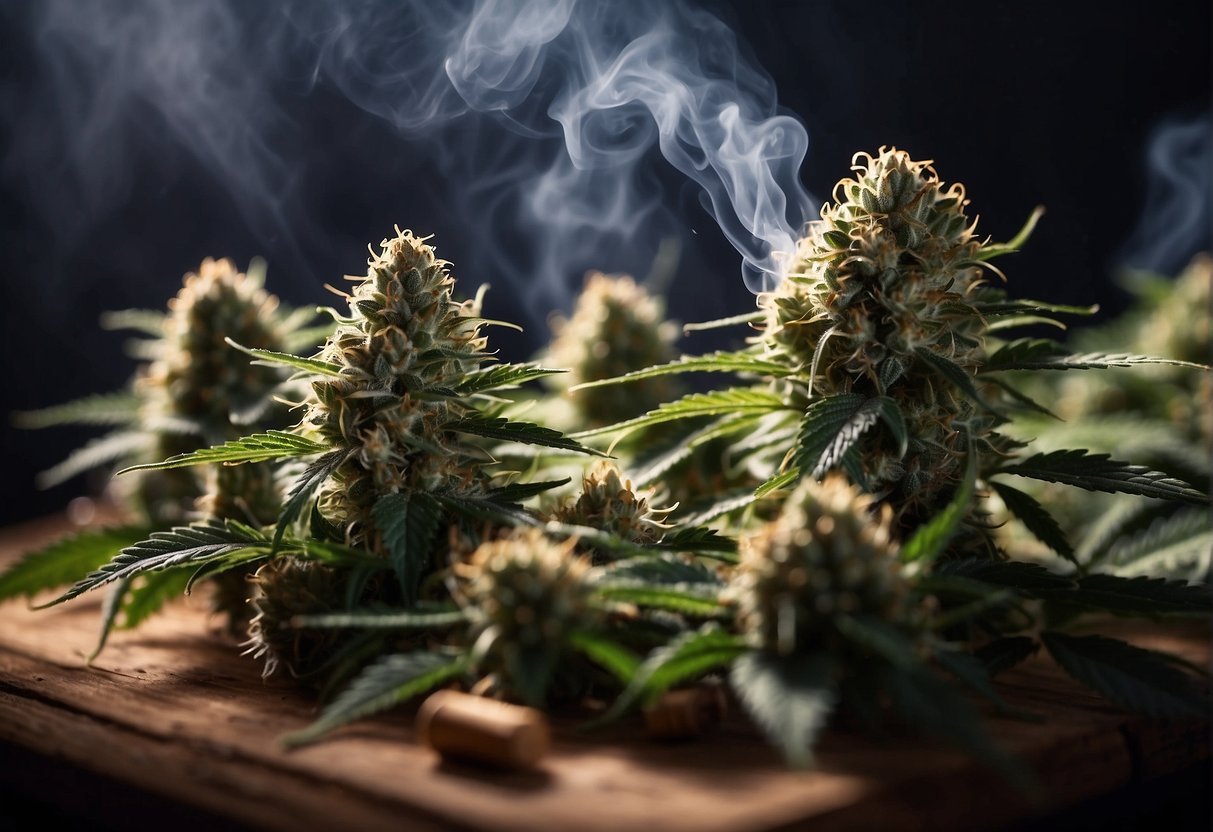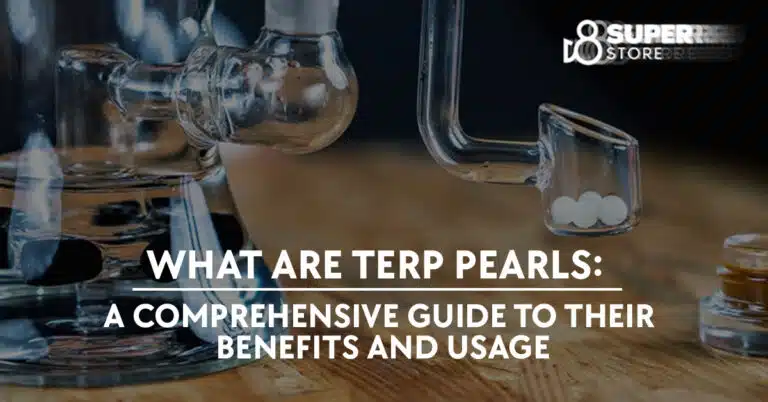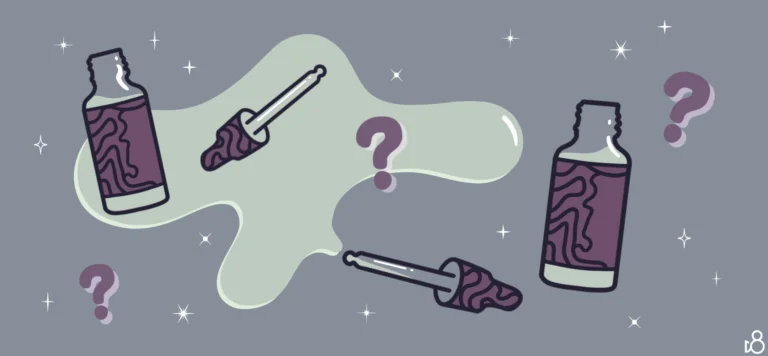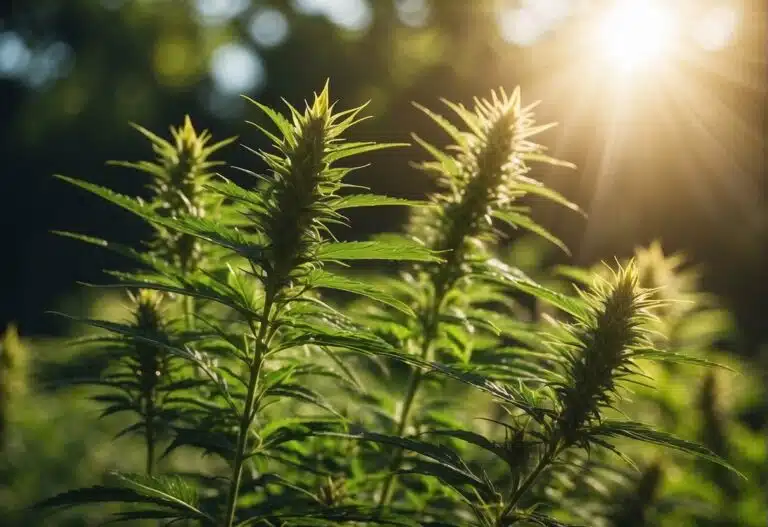Does THCA Turn Into Delta 9 When Smoked?
When you light up weed, an amazing science experiment kicks off. The heat from your lighter hits the leaf, sparking a magical transformation inside. Picture this: tiny molecules inside, known as THCA, dance around and change costumes to become delta-9 THC, the stuff that takes you on a mental rollercoaster. This whole wizardry is called “decarboxylation” – a fancy term for the heat-powered magic trick that unleashes the fun part of marijuana. **This transformation** is what gives you that buzz, making your mind and body feel like they’re on a cloud. If you’re curious about how a simple leaf can turn into a key to another dimension, you’re in for a treat. This detail alone promises an adventure into the science and sensation of enjoying cannabis. Stick around, and you’ll discover the hidden gems of this green wonder.
- Understanding Cannabis and THCA
- THCA to Delta-9 THC Conversion
- Effects of Delta-9 THC on the Body
- Clinical Research and Insights
- Cannabis Consumption Methods
- Regulatory and Legal Considerations
- Consumer Guidance on Cannabis Products
- Conclusion
- Frequently Asked Questions
- What happens to THCA when it is exposed to heat during smoking?
- Is there a difference in psychoactive effects between THCA and Delta 9 THC?
- Can you achieve psychotropic effects from smoking THCA flower?
- What is the legal status of THCA compared to Delta 9 THC?
- How does the potency of THCA compare to that of Delta 9 THC?
- What are the key differences between Delta-8 THC and Delta-9 THC?
Understanding this transformation is important for several reasons. Primarily, it explains why raw cannabis plants don’t have the same effect as when they are smoked, vaporized, or cooked into edibles. The presence of THCA in the plant material, which is non-psychoactive, converts to the active delta-9 THC compound only when sufficient heat is applied, leading to the effects commonly associated with cannabis consumption.
Through decarboxylation during smoking, not all the THCA converts to delta-9 THC, with the efficiency of this conversion being influenced by factors such as temperature and the duration of heat exposure. This partially explains the variability in experiences when consuming cannabis through different methods and why dosing can be complex.
Understanding Cannabis and THCA
In your journey to understanding cannabis, it’s crucial to grasp the nature of THCA and its transformation through smoking. This knowledge informs the effects and uses of cannabis.
Cannabis Plant Composition
The cannabis plant harbors a variety of chemical compounds collectively known as cannabinoids. These compounds, over a hundred in type, include THCA (tetrahydrocannabinolic acid), which is non-psychoactive, and the well-known Delta-9 THC. Raw cannabis predominantly contains THCA, which doesn’t produce the “high” associated with Delta-9 THC.
What Is THCA?
THCA, or tetrahydrocannabinolic acid, is the acidic form of THC found in the raw cannabis plant. It possesses its own therapeutic properties but, importantly, does not cause psychoactive effects. The presence of a carboxyl group in THCA is what distinguishes it from the psychoactive Delta-9 THC.
Decarboxylation Explained
Decarboxylation is a critical chemical reaction that occurs when cannabis is heated. During this process, the carboxyl group is removed from THCA, transforming it into the psychoactive compound, Delta-9 THC. This reaction typically happens when cannabis is smoked or vaporized, turning the non-psychoactive cannabinoid acid into the potent compound most users seek.
Through understanding these key aspects, you’re better equipped to navigate the world of cannabis and its effects on your body.
THCA to Delta-9 THC Conversion
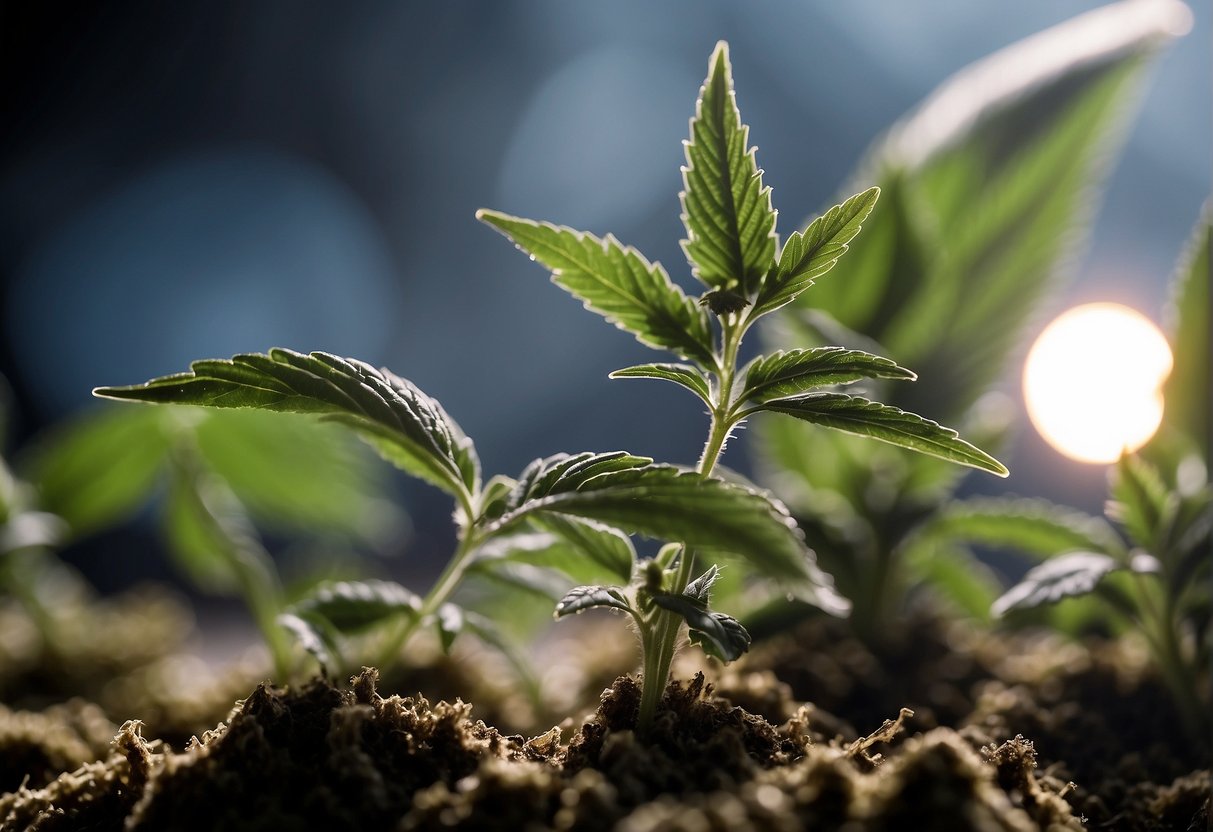
When you smoke cannabis, the application of heat initiates a chemical reaction converting tetrahydrocannabinolic acid (THCA) into the psychoactive component delta-9-tetrahydrocannabinol (Delta-9 THC). This transformation is significant for the effects you experience.
Chemical Structure of THCA
THCA: C22H30O4. The molecule is similar to Delta-9 THC but with an additional carboxyl group (-COOH) attached. In its raw state in the cannabis plant, THCA is non-psychoactive.
Role of Temperature in Decarboxylation
The decarboxylation process is crucial, as it involves removing the carboxyl group from THCA to yield Delta-9 THC. This requires heat – typically around 105–116°C (221–240°F). When you smoke cannabis, the temperatures can exceed this range, ensuring that decarboxylation occurs rapidly.
Smoking vs. Other Methods of Decarboxylation
- Smoking: Quick and efficient, exposing THCA to high temperatures almost instantaneously converts it to Delta-9 THC, allowing you to feel the effects quickly.
- Vaping: Generally occurs at a controlled temperature, which can facilitate a more efficient conversion of THCA to Delta-9 THC compared to smoking.
- Oven: Used to decarboxylate cannabis in preparation for edible products. The process is slower and occurs at lower temperatures to avoid burning the plant material.
By understanding these elements, your grasp of how smoking cannabis affects the chemical composition and the resulting experience is enhanced.
Effects of Delta-9 THC on the Body
When you ingest or inhale Delta-9 THC, the most potent psychoactive component of the cannabis plant, it engages with your body’s endocannabinoid system, affecting both your mind and body. Understanding these effects can help you make informed decisions about its use.
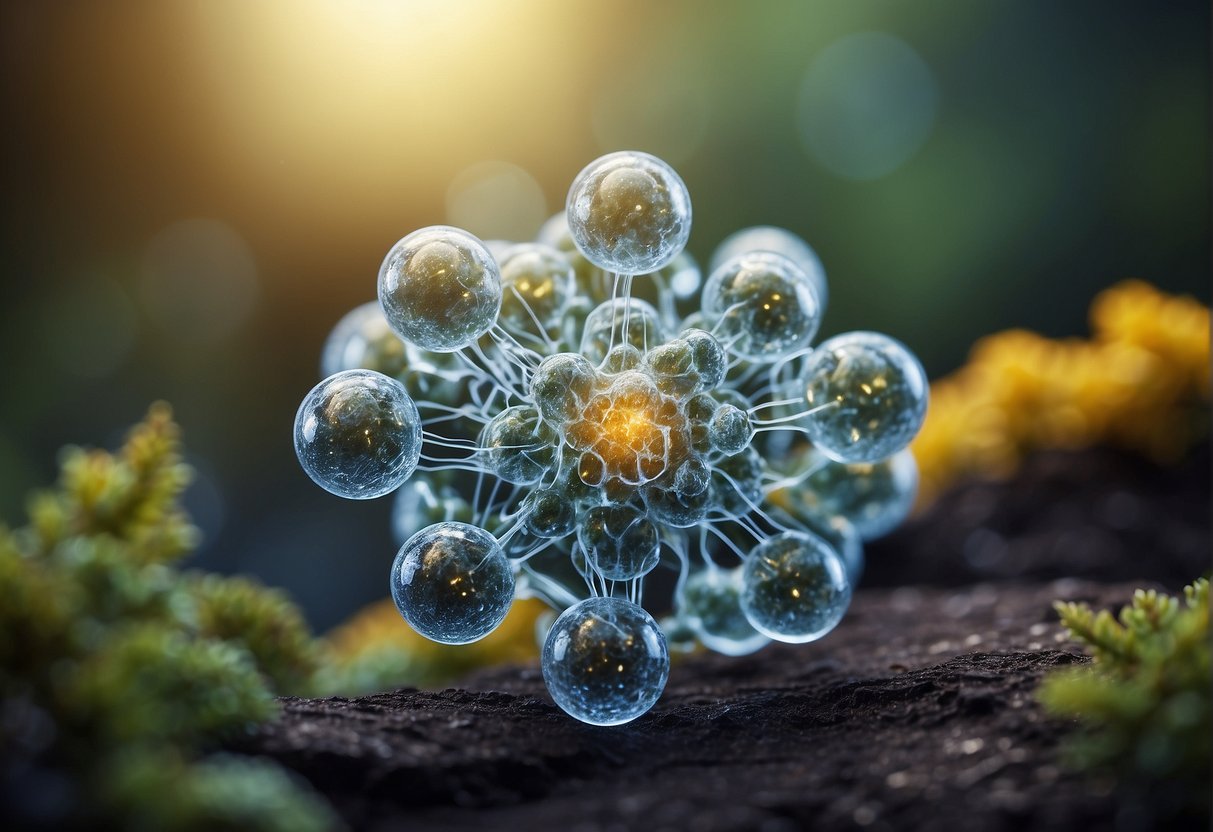
Psychoactive Effects
Delta-9 THC is known for its intoxicating effects, which can alter your perception, mood, and cognitive functions. Upon entering your bloodstream, THC binds to cannabinoid receptors in your brain, notably the CB1 receptors, which are responsible for its psychoactive effects. This activation can lead to feelings of euphoria, heightened sensory perception, and altered time perception.
Potential Medicinal Benefits
In terms of medicinal use, Delta-9 THC has demonstrated potential health benefits. It can act as a neuroprotective and anti-inflammatory agent, providing therapeutic effects for conditions like multiple sclerosis and reducing symptoms such as chronic pain and nausea. It’s important to note that while the therapeutic benefits are promising, research is ongoing to fully understand the medicinal potential of THC.
Side Effects and Risks
However, with the psychoactive effects come potential side effects and risks. Delta-9 THC can cause short-term memory impairments, impaired motor skills, and altered judgment. These side effects are particularly pronounced when THC is vaporized or smoked, leading to a rapid onset of its effects. Long-term or heavy use of THC may increase the risk of certain mental health issues. It’s crucial to consider these risks, especially if you are new to using products containing THC or have pre-existing health concerns.
Clinical Research and Insights
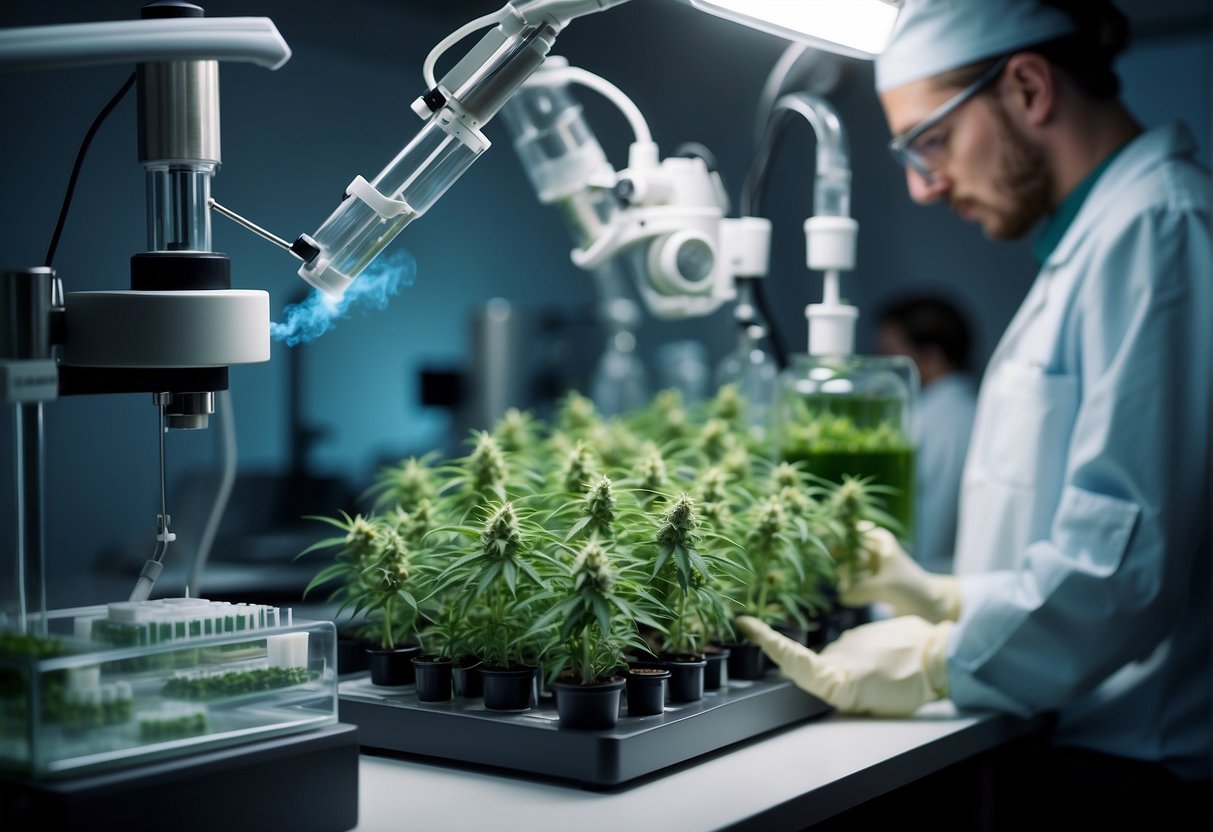
In the evolving landscape of cannabinoid research, understanding the transformation of THCA to Delta-9 THC when smoked and its subsequent effects on the body is critical for consumers and medical professionals alike.
THCA’s Therapeutic Potential
Research on THCA (Δ9-tetrahydrocannabinolic acid) points to its potential as a neuroprotective agent. While THCA is non-psychoactive in its raw form, preliminary studies suggest that it could offer benefits separate from Delta-9 THC. When THCA is exposed to heat during smoking, it converts to the psychoactive compound Delta-9 THC, yet maintaining distinct therapeutic potentials. For instance, a critical review suggests that not all THCA converts during the smoking process, indicating that consumers might also experience the individual effects of THCA.
Impacts of Consuming Delta-9 THC
Upon combustion, Delta-9 THC activates your body’s cannabinoid receptors, mainly found in the brain. This interaction can yield a blend of therapeutic outcomes. Various cannabinoids, including Delta-9 THC, are associated with therapeutic benefits, influencing receptors across the endocannabinoid system. The effects can differ based on the strains of cannabis smoked, with indica strains often considered more relaxing. A study provides insights into how Delta-9 THC, post-consumption, is detectable in different bodily fluids, allowing for a better understanding of its pharmacokinetics which is crucial for both therapeutic use and legal concerns.
Cannabis Consumption Methods
Understanding the different methods of consuming cannabis is crucial for appreciating how the psychoactive compound delta-9-tetrahydrocannabinol (THC) is activated and interacts with your body. Depending on the method of consumption, you may experience varying effects, onset times, and durations of the high.
Smoking Cannabis
When you smoke cannabis, the heat from burning the plant material causes a chemical reaction known as decarboxylation. This process converts tetrahydrocannabinolic acid (THCA), a non-psychoactive compound found in the raw cannabis plant, into the active compound delta-9-THC, which binds to receptors in your brain to produce the euphoric “high” associated with marijuana. Smoking is one of the fastest ways to feel the effects of THC, as the smoke goes directly from your lungs into your bloodstream.
Vaping vs. Smoking
Vaping cannabis involves inhaling vaporized cannabis oil or flower at a lower temperature than smoking. This method may reduce exposure to some of the harmful byproducts of combustion that occur when smoking. Vaping is believed to activate delta-9-THC similarly to smoking, but typically with less irritation to your throat and lungs. Some users report that vaping offers a clearer, more cerebral high compared to the heavier body high of smoking, although effects can vary widely across different individuals and cannabis strains.
Edibles and Tinctures
Edibles are cannabis-infused foods or drinks, while tinctures are concentrated herbal extracts typically administered sublingually (under the tongue). Both methods bypass the inhalation of smoke, making them attractive alternatives for those who prefer not to smoke. With edibles, the THCA is converted into delta-9-THC during the cooking process. Once ingested, the effects can take longer to onset but often last much longer and can be more intense than smoking due to the conversion of THC into the more potent 11-hydroxy-THC by the liver. Tinctures allow for more controlled dosing and can be fast-acting if absorbed sublingually, but can also be added to food and consumed as an edible with similar effects.
Regulatory and Legal Considerations
When discussing the legal landscape of cannabinoids, it’s crucial for you to understand the nuances in regulation that can affect how substances like THCA and Delta-9 THC are handled legally.
Cannabis Legal Status
Cannabis legality varies widely depending on your geographic location. As a controlled substance, the recreational use of marijuana is legal in some U.S. states, whereas others only allow medical use or entirely prohibit possession and use. Be aware that federal law in the United States still classifies marijuana as a Schedule I drug under the Controlled Substances Act, which can lead to conflicts between federal and state laws.
Hemp-Derived vs. Marijuana-Derived Products
The distinction between hemp-derived and marijuana-derived products is a significant one from a legal standpoint. Hemp, with its low concentration of Delta-9 THC (specifically less than 0.3%), is federally legal in the United States. However, marijuana products containing more than 0.3% Delta-9 THC are not federally legal. This differentiation is pivotal for the commercial distribution of products containing cannabinoids, such as CBD or THCA.
Ensuring Safe Consumption
For your safety, regulatory measures are in place to ensure the proper labeling and testing of cannabis products. These regulations are intended to inform consumers like you about the contents and potency of the product, including the presence of THC or THCA, which could convert to Delta-9 when smoked or heated. Regular enforcement of these measures contributes to the safe consumption of cannabis and hemp products.
Consumer Guidance on Cannabis Products
When selecting and using cannabis products, it’s essential to understand how to choose the right strains, determine the correct dosage and potency, and interpret product labels accurately. This guidance ensures you have the best experience while respecting the complexities of this plant and its effects on the body.
Selecting the Right Cannabis Strains
Your experience with cannabis can vary greatly depending on the strain you choose. Strains are distinguished by their unique profiles of cannabinoids and terpenes, which can influence the intensity and type of intoxicating effects you feel. High-THCA strains, for instance, are known to convert into delta-9 THC, the primary psychoactive compound in cannabis, when smoked. This can strongly activate CB1 receptors in the brain, leading to more significant psychoactive effects.
Determining Dosage and Potency
Understanding the dosage and potency of cannabis products is crucial in managing the experience. The potency is a measure of the concentration of cannabinoids, such as THCA and delta-9 THC, and is often expressed in a percentage by weight. When you heat or smoke cannabis, THCA converts to delta-9 THC and affects CB1 and CB2 receptors, which influences potency. Start with a low dose, especially if you are new to cannabis or trying a new strain, to assess your tolerance and the effects on your body.
Understanding Product Labels
Product labels can provide vital information about cannabis items such as strains, dosage, potency, and the presence of specific compounds like terpenes or cannabinoids. They might indicate ratios of THCA to delta-9 THC, which can give you an idea of how potent the product might become when heated. The label might also include information on the potential intoxicating effects and which cannabinoid receptors (CB1 or CB2) the product is likely to influence. Always review the label to ensure you’re consuming the intended amount and to avoid unwanted reactions.
Remember, guidance is aimed at your safety and the optimal use of cannabis products. Make informed choices to ensure a positive experience that aligns with your expectations and needs.
Conclusion
When you smoke cannabis, the heat applied during this process triggers a chemical reaction known as decarboxylation. During decarboxylation, tetrahydrocannabinolic acid (THCA), which is non-psychoactive, is converted into psychoactive Delta-9 tetrahydrocannabinol (Delta-9 THC).
This transformation is significant because Delta-9 THC is the compound primarily responsible for the psychoactive effects associated with cannabis consumption. Studies, such as the examination of the lung availability of cannabinoids, have shown that while the conversion is not entirely efficient, a considerable amount of THCA is indeed converted to Delta-9 THC upon smoking.
It’s also important to note that the rate of this conversion can vary depending on several factors like the temperature and the duration of heat applied. Higher temperatures can facilitate a more rapid decarboxylation process.
Here’s a simplified breakdown of the key points:
- Cannabis Smoking and Decarboxylation:
- Heat is applied to cannabis.
- Decarboxylation converts THCA to Delta-9 THC.
- The efficiency of this process can vary.
- Chemical Changes:
- Non-psychoactive THCA becomes psychoactive Delta-9 THC.
- Potency of the effect is contingent on conversion rate.
In essence, when you light up cannabis, you can anticipate that some amount of THCA will be converted into the Delta-9 THC that influences the experience. Understanding this process can help you make informed decisions about your consumption.
Frequently Asked Questions
Understanding the transformation of THCA into Delta 9 THC when smoked is critical for recognizing its effects and legal implications.
What happens to THCA when it is exposed to heat during smoking?
When you heat THCA during smoking, it undergoes a process called decarboxylation. This chemical reaction removes a carboxyl group from THCA and converts it to psychoactive Delta 9 THC. Research indicates that decarboxylation is necessary to activate the compound’s psychotropic effects.
Is there a difference in psychoactive effects between THCA and Delta 9 THC?
Yes, there is a significant difference in the psychoactive effects between THCA and Delta 9 THC. THCA is a non-psychoactive precursor to Delta 9 THC, meaning it won’t produce a “high” on its own. When THCA is decarboxylated to Delta 9 THC, it becomes psychoactive and can produce the intoxicating effects commonly associated with cannabis.
Can you achieve psychotropic effects from smoking THCA flower?
You can achieve psychotropic effects from smoking THCA flower, as the heat from smoking converts THCA into psychoactive Delta 9 THC. The lung availability of cannabinoids by smoking marijuana is a factor that influences the strength and onset of the effects.
What is the legal status of THCA compared to Delta 9 THC?
The legal status of THCA typically differs from that of Delta 9 THC due to the latter’s psychoactive properties. While Delta 9 THC is regulated or prohibited in many jurisdictions, THCA may not be under the same restrictions since it isn’t psychoactive until it is decarboxylated.
How does the potency of THCA compare to that of Delta 9 THC?
The potency of THCA as a non-psychoactive compound is markedly different from that of Delta 9 THC. Potency, in this context, refers to the ability to produce psychoactive effects. Therefore, Delta 9 THC is potent in terms of its ability to affect your mind and body, while THCA lacks these effects until transformed through heat.
What are the key differences between Delta-8 THC and Delta-9 THC?
The key differences between Delta-8 THC and Delta-9 THC lie in their chemical structure and effects. Delta-9 THC is more potent and has stronger psychoactive effects, while Delta-8 THC is less potent and may offer a milder high. The two are closely related yet differ in their double bond location, influencing their interaction with the body’s endocannabinoid system.

